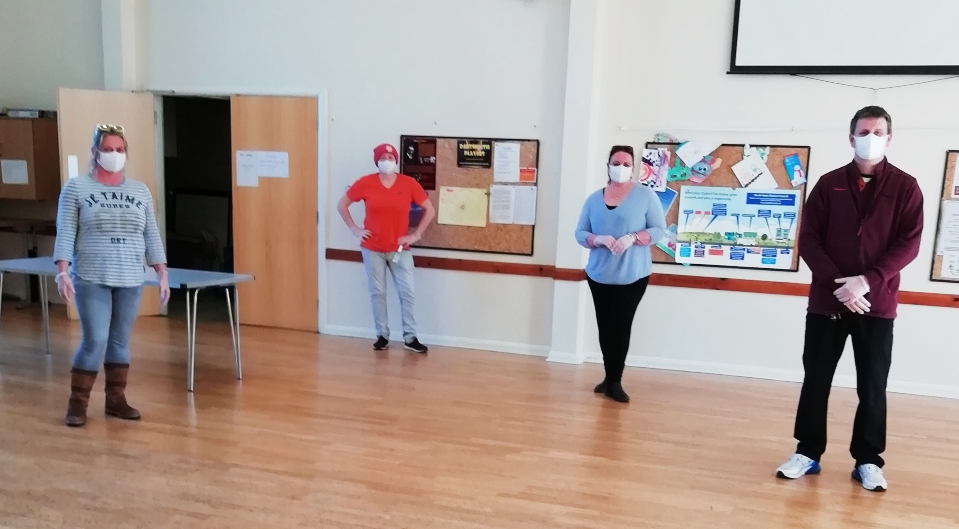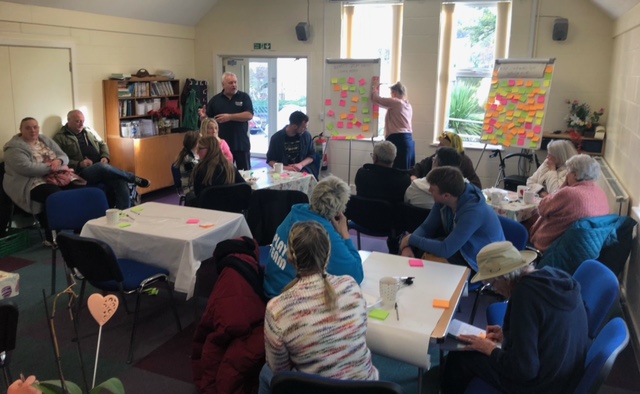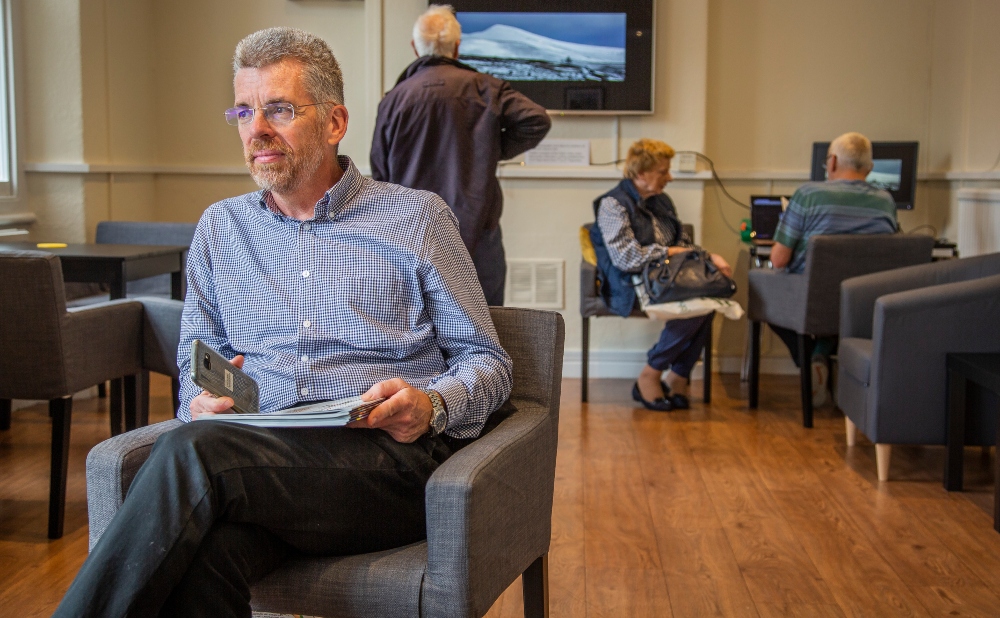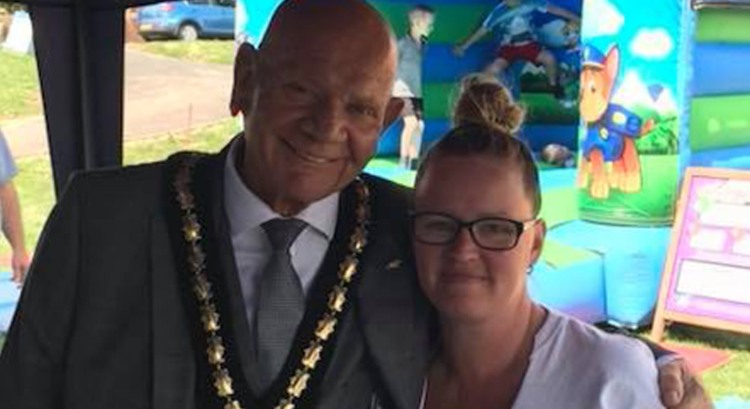In Dartmouth, the local grassroots volunteer-led organisation Dartmouth Community Chest founded by residents Dawn Shepherd, Jayne Hammoudeh-Webb and Graham Webb, has responded to coronavirus with agility and intelligence. It has been able to quickly adapt its usual activities to create an emergency central hub of community support. Backed up with local information, and an established structure this dynamic group has seamlessly evolved, to meet unprecedented levels of community need arising from this crisis.
Coastal and rural issues
Dartmouth appears an affluent town, but the working locals face all the socio-economic issues associated with living in a coastal town including high levels of zero-hour contracts and seasonal work. Added to that are the additional challenges of being rurally isolated with poor bus links to other towns, affecting employment opportunities and access to healthcare and hospitals or support services.
Usual activities
Usual activities for the Community Chest team include helping those experiencing hardship in the town responding to issues of Universal Credit waiting times, fuel poverty in the winter, working with local supermarkets to provide food packages, and up-cycling, collecting and distributing furniture and other goods. The distribution of secondhand white goods and other items plays a key part in keeping people from getting into debt, while re-distributing goods keeps things local and reduce fly-tipping as recycling centre is also miles away.
Mutual support
TQ6 Community Partnership has been working closely with Dartmouth Community Chest and supporting each other to bring back to Dartmouth what the community say they need.
“We have been running Friday Hub sessions for several months bringing residents and service providers together with all of us enjoying a hot meal together,” said Wendy Price TCP co-ordinator.
Hub sessions
Sessions included offering food parcels, and creating a space for services such as Housing Officers, Citizens Advice, energy switch organisations, council locality officers, to deal with resident’s issues, there and then, face-to-face as well as a drop-in for the local police. Any institutional barriers were further broken down by everyone sitting around a table eating a hot meal together, all cooked by volunteers.
Helen Widlake from Citizens Advice said: “It’s like coming into someone’s front room, you can clearly feel the trust is here and it’s been great for us to be able to support clients who may have previously had barriers to accessing the support we have to offer.”
Perfect springboard
The networks created by the Hub easily adapted into dealing with the situations around coronavirus.
“It’s been a perfect springboard to this new emergency,” said Wendy.
The community hall, which was being used for the Friday Hub sessions, had all its bookings cancelled. In the crisis, the hall’s committee agreed that it could be used as a dedicated emergency base and some money was found through a local charitable trust to cover a discounted hall hire.
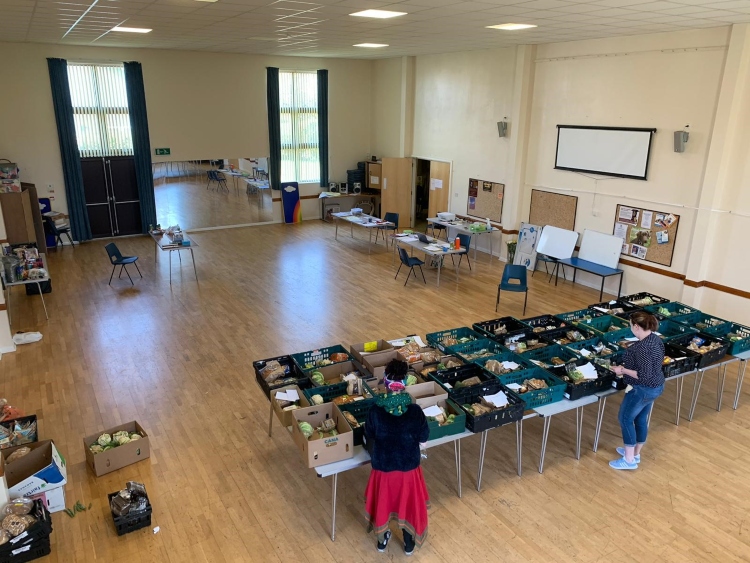
Preparing food packages in week 1
Food donations from local supermarkets are topped up with essential groceries and food parcels and hot meals are cooked: week one saw 291 hot meals cooked and delivered and 132 food parcels; week two saw a staggering total of 713 hot meals, and 291 food parcels, along with collecting and delivering prescriptions, shopping and recycling sacks.
Remove barriers
This is all at no charge, it’s important to ensure it’s available to everyone who needs it and removes any barriers for people needing support.
Dawn has been working with people in crisis all her life and running food banks for many years, she knows intuitively what to do and how to listen and respond to the needs of people. She also understands how vital a community-centred approach is during these times.
Minimising fear and pressure
“If we can help by taking some of the fear and the pressure out of what is going on, people are less likely to make knee jerk reactions and are more likely to be coping with the day-to-day,” said Dawn.
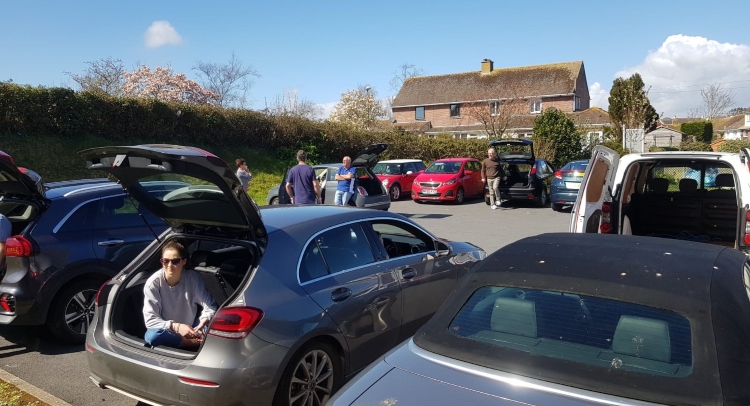
Volunteers ready and waiting
Volunteer Alisa Kefford Parker said: “We are here to help each other and that gives a great sense of security to us all.
“The team is focused on supporting the hard-pressed and vulnerable in the town but this is extending out to others who may not have previously needed to seek support. Over the years of doing their work, Dartmouth Community Chest has developed strong networks and good relationships which means the real story is, of course, that of the volunteers, wanting to do something for their community, embracing the challenge and putting themselves on the frontline and making this crisis support possible.
Growing and learning
“It’s great to see people growing and learning in such a crisis and in the absence of services, many of whom are having to work from home, a big reinforced learning point for us is that when the right conditions and relations are in place, the community are brilliant at doing it for themselves. They know what is needed, who needs it and then they support them in whatever way they can to help.”
Grassroots
We are watching with growing admiration how each C2 Hub across the country is offering its own support for its individual community, tailoring their action to each community’s needs.

